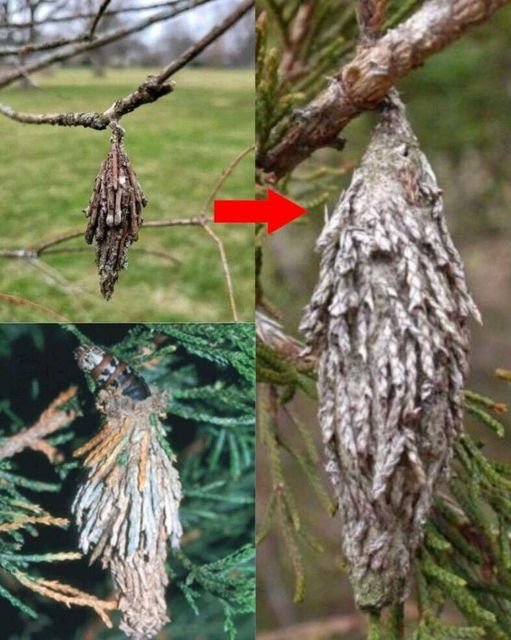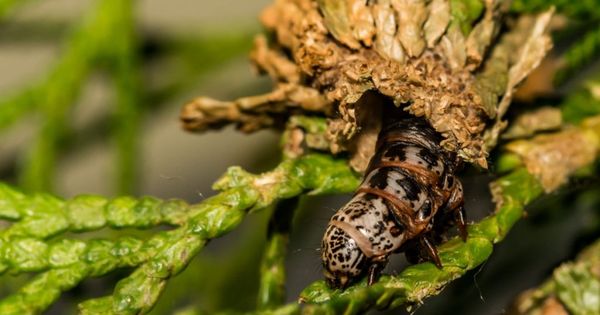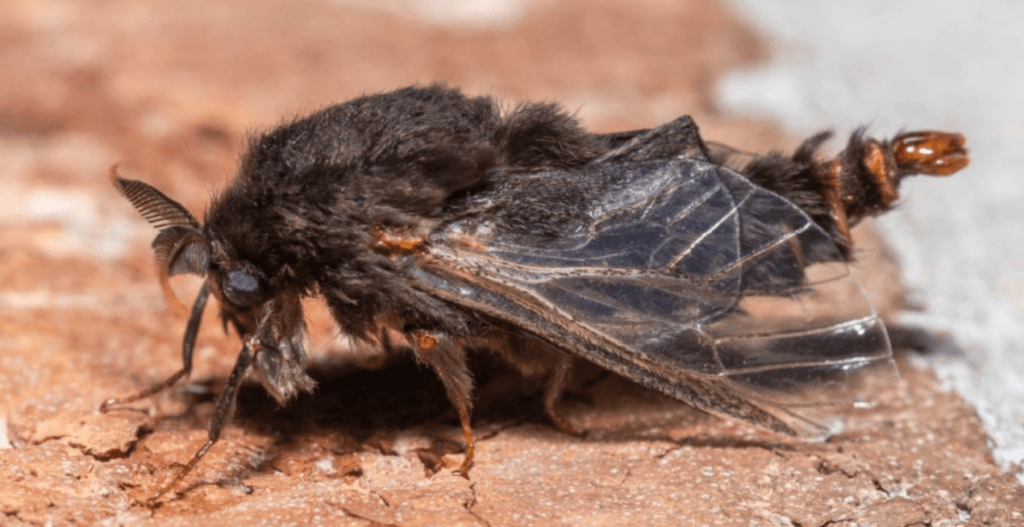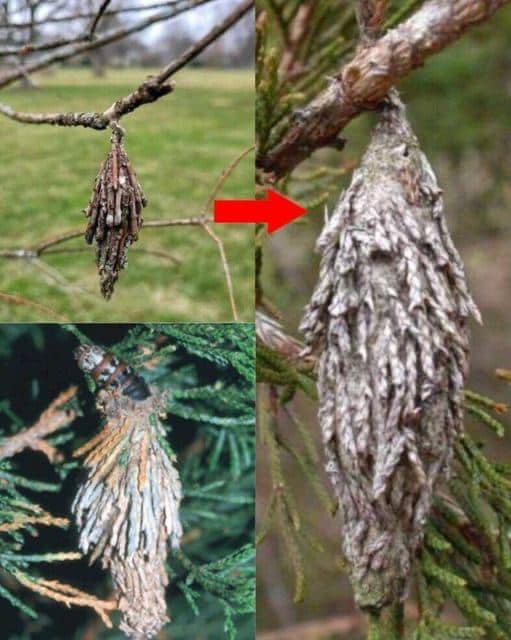Anyone who has ever faced an infestation of evergreen bagworms knows how much damage these tiny creatures can inflict on our cherished trees. Those lovely evergreen trees lose their needles and can ultimately perish. But don’t fret! There are ways to protect your trees if you know what to do.

Understanding Evergreen Bagworms
Evergreen bagworms, or Thyridopteryx ephemeraeformis, are a type of moth from the Psychidae family. Though small and often hard to notice, these insects can cause significant damage to our trees. Their name comes from the unique protective bags or pouches they create around themselves.

Over time, these bags grow to become portable shelters, hanging down from tree branches. The life cycle of these bagworms starts when the adult female lays eggs inside her bag, which stays on the tree even after her death. These eggs remain dormant through winter and hatch in late spring or early summer, producing tiny larvae.
The newly hatched larvae emerge in search of a suitable host tree. Once they find a spot, they start making their bags from the silk produced by glands in their bodies. Initially, these bags are small and inconspicuous. However, as the larvae grow, they continuously add more plant material to the bags, making them larger and more noticeable over time. The larvae go through several molts, constructing new layers to their bags each time. In late summer or early fall, they enter their final growth stage, a period that typically lasts around six weeks, before they pupate.
Within these protective shells, the larvae transform into adult moths. After about two weeks, adult moths emerge, with females usually staying close to the trees where they were born, while males, which are smaller and dark with more noticeable wings, fly off in search of females.
The Destruction Caused by Evergreen Bagworms
At first glance, evergreen bagworms might seem harmless. However, if left untreated, they can cause significant damage to your trees. Bagworms are voracious eaters adept at consuming the leaves of various tree species. They use their bags as both protection and camouflage while they feed.
As these pests munch away at the leaves, the tree’s ability to perform photosynthesis is compromised, leading to reduced nutrient absorption and overall weaker health. Over time, this feeding behavior can severely weaken the tree, making it more vulnerable to other diseases, pests, and environmental stress. Without intervention, an infestation can ultimately kill the tree.

Controlling Evergreen Bagworm Infestations
To safeguard your trees from the detrimental effects of evergreen bagworms, it’s crucial to take prompt and effective action. Here are some strategies to consider:
Preventative Measures
It’s always better to prevent a bagworm infestation than to have to deal with one. The following methods can help mitigate the risk of infestation and promote your tree’s overall health:
– Regularly inspect your trees for signs of bagworm activity, such as small bags hanging from branches.
– Cut down and destroy the bags found on your tree, especially during winter when the eggs are dormant.
– Use insect screens or netting to create a barrier around the tree, preventing adult females from laying eggs.
– Ensure your tree is well-watered and gets adequate nutrients to maintain its health and vigor.
By keeping your trees healthy and implementing these preventative measures, you can safeguard against the silent threat posed by evergreen bagworms.
Conclusion
Evergreen bagworms may be small and difficult to spot, but they have the potential to cause severe damage to your trees if left unchecked. By understanding their life cycle and destructive habits, and by employing effective management techniques, you can protect your trees from these harmful invaders. Consistent inspections, preventative steps, and maintaining tree health are key to keeping these pests at bay and ensuring the beauty and vitality of your landscape. Don’t let the silent menace of evergreen bagworms take away the joy that your trees bring.




